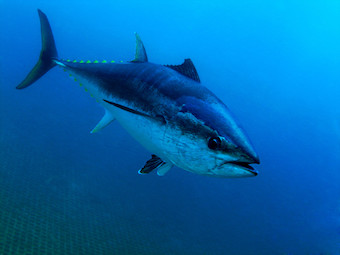The world is rapidly running out of wild fish – but any individual fisher is incented to keep fishing until everyone else decides to cut back too.
The situation is similar with a whole host of other environmental issues faced by our species, at this point in our history. This is a common result when and where the resources are widely dispersed, and owned by both everyone and no one at the same time. Given that such resources are never inexhaustible, their eventual depletion is inevitable. Properly managing them always presents a daunting challenge. And when it comes to fishing, because so much takes place in international waters, or far offshore where monitoring is difficult, there is probably no better example.
What are we to do? We don’t have the option to not solve this problem, as a collapse of fish stocks would be as catastrophic for us as it would be for other species. I don’t pretend to have the answer. Nevertheless, given what we already know, a number of pathways to a solution certainly do present themselves.
To begin with, let’s dispense with the notion that sufficient incentives for conservation will emerge as the resource becomes more scarce, and its commercial value therefore goes up. Bluefin tuna, like the one pictured above, have become the most expensive fish on the market. This extraordinary species, which migrates over vast distances, can swim up to 50 miles per hour, and live up to four decades, have now been reduced to less than 3% of their population of just a few decades ago. Just a single one of these tuna recently sold for more than $3,000,000 in a Tokyo fish market. The desire to exploit this market has been undiminished by the fact that it is close to disappearing altogether.
In short, many of our environmental problems are really public goods problems. As such, solutions can only be found through cooperative action or public policy. A bottom up approach will not work. Consider that only a tiny percentage of the human population needs to believe in the nonexistent medicinal properties of, say, a rhino horn or a totoaba fish’s swim bladder, and that species may well be hunted to extinction. Clearly, we need to start with some kind of high level agreement to put in place some useful structure, and let the details and innovation filter down from there.
Over the next few months, governments will meet at the UN to negotiate a Global Ocean Treaty. Should this effort prove successful, it may well provide our best hope for saving the seas we all depend on. Or at least the essential first step to a process that might achieve that. I can’t see a path forward that doesn’t involve comprehensive agreements on industrial scale fishing, deep-sea mining and oil-drilling. We need to conserve at least 30% of our oceans, establish Marine Protected Areas, and work co-operatively to reduce the amount of ghost gear and other plastics in our seas. I think it’s safe to say that, when it comes to an internationally recognized Ocean Treaty, failure is not an option.
There is also much room for individual governments to step up and improve enforcement for fishing vessels out at sea. We know from recent experience that self-reporting is unreliable and doesn’t come close to presenting an accurate picture of the true environmental damage caused. We’ve also come to realize that in many cases our labeling laws fall far short, and that some ‘dolphin-friendly’ brands will frequently be responsible for the deaths of large numbers of dolphins and other species designated as ‘bycatch’. We need to do much better, and not turn a blind eye to what takes place on fishing boats out on the water.
We applaud the New Zealand government’s recent move to have cameras installed on 300 commercial fishing vessels. This will ensure greater accountability in an industry that regularly fails to adhere to catch limits, or to properly report bycatch of non-target species. NZ law already requires them to report such incidents, but monitoring has been lacking, and enforcement therefore very difficult. There is no doubt that the cameras will help.
Sadly, this won’t eliminate the death of dolphins and others, but it will make it much more difficult to hide. We need to find any other appropriate means to bring accountability to an industry that does so much harm. And we need to demand it of our governments, not just in New Zealand but everywhere. Having all of our fishing vessels above a given size equipped with cameras seems like a good place to start.
Lastly, I’d like to say this – how we think about such issues in our collective consciousness will be vitally important. Research finds that the way our brains have been wired by evolution, we are much more motivated to work for long-term change by positive rather than negative reinforcement. We tend to push ourselves towards reward, whereas our response to fear and anxiety is most often to freeze or avoid. So when it comes to big environmental goals, if we want to motivate ourselves and others, we need a positive vision of what we believe the world can look like, rather than only a catastrophe we need to avoid.
Marine life thriving and abundant, healthy seas as part of a healthy biosphere, and our descendants living in harmony with a world which is in balance and operating within its natural boundaries. That world is attainable, if we want it enough to fight for it.
For The Orca’s Voice,
Dakota, Canadian Cetacean Alliance



Leave a Reply